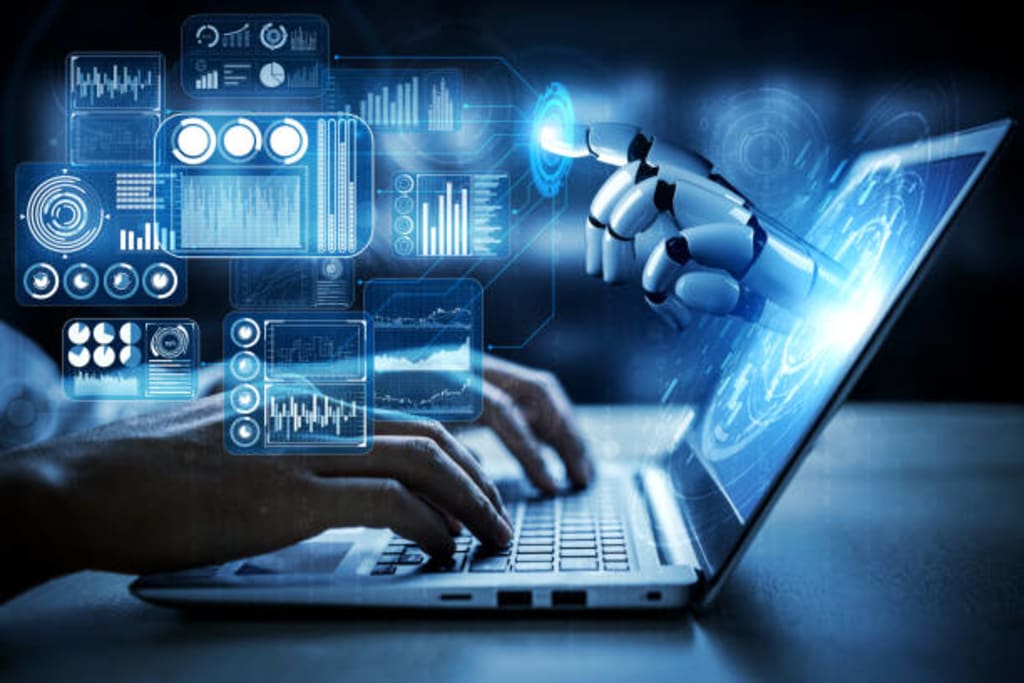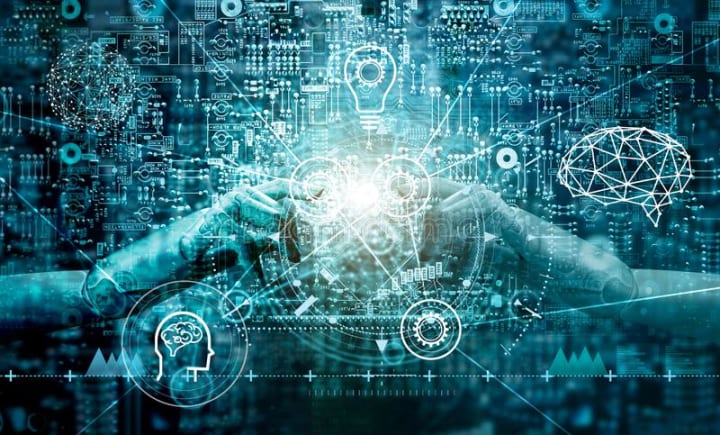Evolution of AI in Life
daily progress of AI in life on a global scale AI Evolution in Life

Artificial intelligence has come a long way since its inception in the mid-20th century. It has evolved from simple rule-based systems to complex neural networks that can mimic the cognitive functions of the human brain. Today, AI is an integral part of our daily lives, and its impact can be seen in various industries, from healthcare to finance to transportation. In this article, we will explore the evolution of AI and how it has changed our lives.
The Beginning of AI
The origins of AI can be traced back to the 1940s when scientists began to explore the idea of creating machines that could mimic human intelligence. In 1956, the term "artificial intelligence" was coined, and the field of AI was born. At first, AI was based on rule-based systems that followed predetermined sets of instructions. These early AI systems were limited in their capabilities and could only perform basic tasks such as solving mathematical problems or playing simple games.
The Rise of Machine Learning
The 1990s saw the rise of machine learning, a subfield of AI that focused on creating algorithms that could learn from data. This marked a significant shift in the development of AI, as it allowed machines to improve their performance over time without human intervention. With the advent of machine learning, AI systems began to be used in a wider range of applications, including image and speech recognition, natural language processing, and predictive analytics.
Deep Learning and Neural Networks
The 2010s saw the emergence of deep learning, a subfield of machine learning that uses neural networks to model complex relationships between data. Deep learning has revolutionized AI, allowing machines to learn from vast amounts of data and make accurate predictions with a high degree of accuracy. Today, deep learning is used in a wide range of applications, including image and speech recognition, autonomous vehicles, and medical diagnosis.
AI in Everyday Life
AI is now an integral part of our daily lives, and its impact can be seen in various industries. In healthcare, AI is being used to diagnose diseases, predict patient outcomes, and develop personalized treatment plans. In finance, AI is being used to detect fraud, make investment decisions, and automate trading. In transportation, AI is being used to develop autonomous vehicles, optimize traffic flow, and improve safety.
The Future of AI
The future of AI is exciting and full of possibilities. As AI continues to evolve, we can expect to see even more advanced applications, from robots that can perform complex tasks to virtual assistants that can anticipate our needs and preferences. However, with the rapid pace of development in AI, there are also concerns about its impact on society. Some worry that AI could lead to job displacement or even pose a threat to humanity if it becomes too advanced.
Governments, businesses, and society as a whole must work together to address the ethical and social implications of AI and to ensure that it is developed and used responsibly.
One of the key challenges facing the development of AI is ensuring that it is transparent and explainable. As AI systems become more complex and powerful, it can be difficult to understand how they arrive at their conclusions. This can lead to a lack of trust in AI and concerns about bias and discrimination. To address this challenge, researchers are working to develop explainable AI, which will allow users to understand how AI systems make decisions and provide greater transparency and accountability.
Another challenge facing the development of AI is ensuring that it is secure and protected from malicious attacks. As AI becomes more integrated into our lives, it becomes a more attractive target for cybercriminals. To address this challenge, researchers are developing new security measures, such as using blockchain technology to secure AI systems and developing AI systems that can detect and defend against cyberattacks.

As AI continues to evolve, we can expect to see even more exciting developments in the coming years. One area of AI research that is currently receiving a lot of attention is artificial general intelligence (AGI). AGI refers to machines that are capable of understanding and learning any intellectual task that a human being can. While current AI systems are specialized and can only perform specific tasks, AGI has the potential to transform the way we work and live.
Another area of AI research that is showing great promise is robotics. Robots are becoming increasingly advanced, and they are being used in a wide range of applications, from manufacturing to healthcare to space exploration. With advances in AI, we can expect to see even more sophisticated robots that can perform complex tasks and interact with humans in more natural ways.
Despite the many benefits of AI, there are also concerns about its impact on society. One of the biggest concerns is job displacement. As AI systems become more advanced, they will be able to perform many tasks that were previously performed by humans. This could lead to job losses in certain sectors, particularly in industries that rely on manual labor or routine tasks. To address this challenge, governments and businesses must work together to create new job opportunities and to invest in education and training programs that will prepare workers for the jobs of the future.
Another concern about AI is its impact on privacy and security. AI systems are capable of collecting and analyzing vast amounts of data, and this raises concerns about how this data is used and protected. To address this challenge, it is important to establish clear rules and regulations for the collection and use of data, and to develop new security measures that can protect against cyberattacks and data breaches.
In conclusion, the evolution of AI has been a fascinating journey that has transformed the way we live and work. From its humble beginnings as a rule-based system to its current state as a powerful tool for solving complex problems, AI has come a long way. However, as we look to the future, it is important to approach the development of AI with caution and to ensure that it is developed and used responsibly. By working together to address the ethical and social implications of AI, we can harness its power to create a better future for all.





Comments
There are no comments for this story
Be the first to respond and start the conversation.